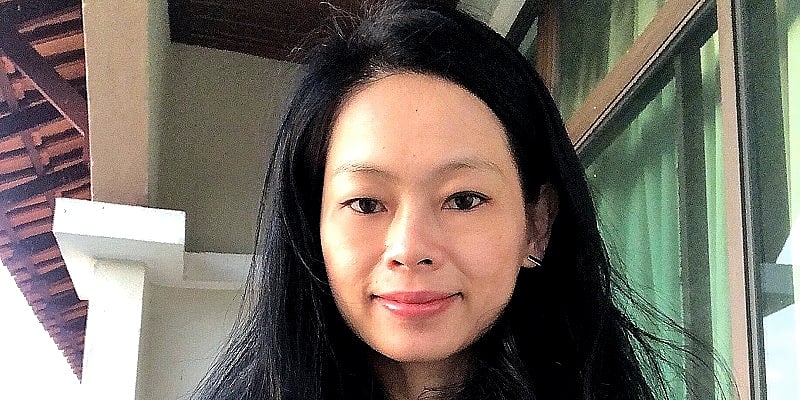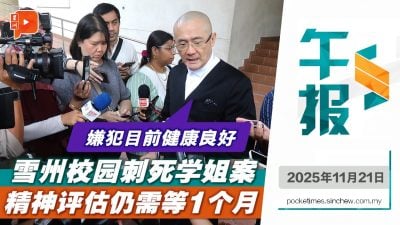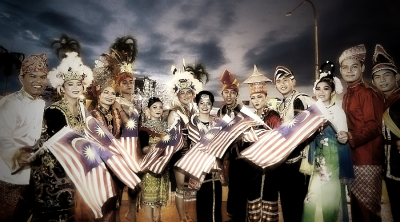
The internal elections of Parti Keadilan Rakyat (PKR) have once again laid bare the contradictions of a party once synonymous with the spirit of political reform in Malaysia.
Far from being a straightforward democratic exercise, the elections have instead become a flashpoint for more profound questions about Malaysia’s post-2018 political direction, the meaning of Reformasi in today’s context, and whether PKR can remain the standard-bearer of democratic renewal.
For decades, PKR represented hope. It was born out of a moral outrage against authoritarianism in 1998 and carried the dreams of those who believed Malaysia could be more just, transparent, and inclusive.
Today, as it occupies the apex of political power under Prime Minister Anwar Ibrahim, the party finds itself caught between its roots in street-level activism and the realities of governing a diverse and increasingly disillusioned electorate.
A party at war with its own promise
On paper, PKR’s internal election appears progressive, even technologically advanced.
The use of blockchain-based voting was meant to reflect transparency and modernization. But in practice, the system failed to gain public trust, as it was plagued with technical glitches and marred by accusations of irregularities.
What should have been a showcase of digital democracy turned into another reason for suspicion, with some candidates threatening formal protests over the results.
Beneath these procedural issues lie deeper cracks. The defeats of high-profile figures such as Nik Nazmi and Christina Liew are not mere electoral accidents; they reflect wider discontent and signal a shift in the party’s internal power dynamics.
For some, this is a necessary generational transition. For others, it is a worrying sign of growing factionalism and the return of the very “cartel politics” PKR once vowed to dismantle.
More troubling still is the broader public perception. While the Prime Minister insists that internal party contests will not lead to a Cabinet reshuffle, such assurances do little to address the perception that reformist ideals no longer drive PKR, but by personal ambition and survival instincts.
This disconnection is dangerous, not just for PKR, but for Malaysian democracy.
The Reformasi spirit: Faded or evolving?
Reformasi was never just a political campaign; it was a movement. It emerged from the moral clarity of 1998, when the sacking and jailing of Anwar Ibrahim exposed the authoritarian underbelly of Malaysian governance.
That moment galvanized a generation and gave birth to a new vocabulary of dissent, multiracial unity, and civil rights.
But the Malaysia of 2025 is not the Malaysia of 1998. The political terrain has shifted. Social media, information overload, and the personalization of politics have fragmented public sentiment.
Youths are more politically conscious than ever, yet more skeptical, jaded by decades of elite failure and policy backsliding.
They care about climate change, digital freedom, affordable housing; but few believe political parties can deliver. That cynicism now engulfs PKR as well.
The events of 2018 once seemed like a breakthrough, a moment of reckoning when the people’s mandate broke through the barriers of race-based politics and entrenched patronage networks.
But what followed, such as political defections, backdoor governments, and policy drift undid much of that hope.
Today, the unity government, led by Anwar and backed by the very establishment it once opposed, is seen as pragmatic but ideologically hollow. And that hollowness is now reflected in PKR’s internal soul-searching.
Who will lead, but also, to where?
Leadership succession in PKR is not just a matter of personality; it is a referendum on the party’s direction.
Rafizi Ramli represents data-driven governance and policy-oriented reform but has struggled to expand his base. Saifuddin Nasution stands for institutional loyalty and administrative continuity yet lacks grassroots charisma. Amirudin Shari, the technocrat from Selangor, is competent but untested on the national stage.
What unites them is uncertainty. None has yet articulated a compelling vision that redefines Reformasi for today’s Malaysia.
The danger is that PKR becomes a party of administrators rather than agitators, a managerial outfit rather than a movement.
Reformasi risks becoming a museum piece, remembered with nostalgia but detached from contemporary relevance.
This is where the party faces a moment of truth. It must decide whether it will continue to treat reform as a slogan or reimagine it as a method of governance. That means going beyond symbolic leadership changes.
It requires structural overhaul, such as transparent leadership transitions, genuine youth participation, local empowerment, and a stronger anti-corruption framework that applies within the party as rigorously as it demands of others.
Malaysia at a political crossroads
Malaysia’s political future is inseparably tied to PKR’s evolution.
As the anchor party of the Unity Government, it holds immense responsibility and faces a credibility crisis.
If PKR cannot prove that it can reform itself, how can it lead national transformation?
The broader political climate is not forgiving. PAS and Bersatu continue to command significant support in Malay heartlands. Umno remains weakened but not irrelevant.
Meanwhile, civil society has grown increasingly detached from formal politics, focusing on issue-based activism and community resilience instead.
This fragmentation suggests that Malaysia is not just between elections, it is between paradigms.
Old labels like left, right, Islamist, liberal are giving way to new fault lines: transparency versus patronage, competence versus populism, conviction versus convenience.
PKR, if it dares, can lead this new wave. But only if it stops being reactive and begins shaping the discourse again.
That means engaging with civil society not just as voters but as partners.
It means building coalitions across class, geography, and ideology, not to win elections but to re-establish public trust.
It also means confronting hard truths: that youth participation must go beyond tokenism, that internal dissent must be protected, not punished, and that leadership cannot be inherited but must be earned.
Reformasi 2.0: Is it possible?
Malaysians must now ask whether a new form of Reformasi can emerge. One that is less about charismatic figures and more about democratic systems, less about resisting authoritarianism, and more about building accountable institutions.
This won’t come from one party alone. But PKR is uniquely positioned to lead the way, given its legacy, experience, and access to power.
Yet that legacy is a double-edged sword. If it fails to live up to its past, it will be judged more harshly than those who never claimed the reformist mantle.
And if it squanders this moment, the damage will be felt not just by PKR, but by the very idea of democratic transition in Malaysia.
For Reformasi to live again, it must become a verb, not a noun.
It must mean participatory budgeting, not just fiery speeches. It must mean curbing executive power, not just rotating who holds it. It must be measurable, in laws passed, in voices heard, in lives improved.
Not just about PKR, But about us
At this critical juncture, PKR must remember that its greatest power has never come from internal elections or Cabinet positions, but from the people who believed in it.
Those people are watching again, this time with sharper eyes and deeper doubts.
The party now stands not at the peak of its journey, but at its most important fork in the road. Will it continue its drift toward bureaucratic complacency, or will it rediscover the moral urgency that gave birth to Reformasi in the first place?
The stakes are bigger than PKR. They go to the heart of what kind of political culture Malaysians want to build.
Do we still believe in change, not just of faces, but of systems? If the answer is yes, then the responsibility falls on all of us, not just one party, to demand better and imagine more.
In the end, PKR’s internal struggle is a mirror of Malaysia’s democratic soul.
Whether that reflection leads to renewal or regression depends not just on who wins the party election, but on whether the ideals that once moved a nation can find their footing once more.
(Khoo Ying Hooi, PhD, is an Associate Professor of International Relations and Human Rights at Universiti Malaya. Her work spans human rights research, diplomacy, and policy engagement across ASEAN and Timor-Leste, along with active contributions in editorial and advisory capacities.)
ADVERTISEMENT
ADVERTISEMENT








































